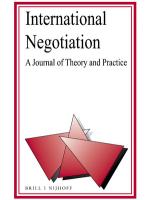What Do Islamists Bring to the Negotiation Table?

In a new special issue that grapples with the question of why Islamist conflicts are rarely resolved through negotiated settlements, senior researcher Mona Kanwal Sheikh sheds light on the particular role of religion in these conflicts.
Is religion the main reason why negotiations with Islamists fail, she asks? Contemporary literature on the relationship between religion and conflict in International Relations (IR) points at religion as particularly diehard and harder to compromise than other forms of conflict-claims. Accordingly, religious conflicts are understood as unique phenomena. One might expect that these characteristics of religion would explain the difficulties of successful conflict resolution attempts with Islamists, i.e. why it is more difficult to find peaceful solutions with Islamists than with other insurgent groups raising demands other than religion-based. But what do we actually know about what Islamists bring to the negotiation table?
The article looks at the case of the Pakistani Taliban and the sort of demands they have made during peace talks and in their communication materials. This is done in order to evaluate whether theories that have argued for religion being a unique phenomenon – namely theories of scarce resources, indivisibility and securitization - can explain the difficulties of negotiating with Islamists.
DIIS Experts



